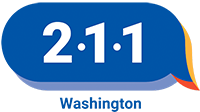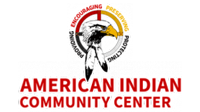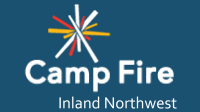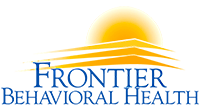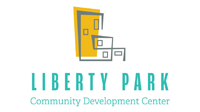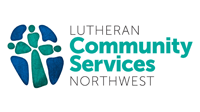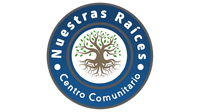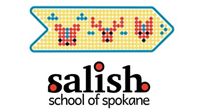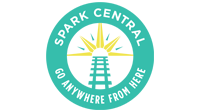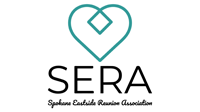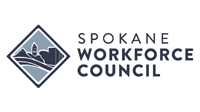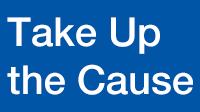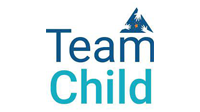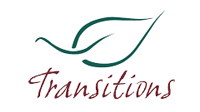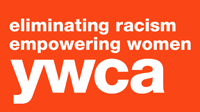Community Impact Partners
We unite community resources to address our community's greatest needs. Our staff, volunteers, donors, and agency partners create lasting, sustainable changes that transform lives and build a thriving community for us all.
Mission
To provide clinically and culturally appropriate behavioral healthcare and related services to people of all ages, in collaboration with community partners.
People Served From Grant: 16,000
For more information, visit Washington 2-1-1
Mission
The American Indian Community Center aims to provide comprehensive social and economic development services for all racial groups in our community, fostering individual and family self-sufficiency while preserving the cultures and traditions of Indian people.
People Served from Grant: 6,700
Visit Website
Mission
Camp Fire Inland Northwest's mission is to help youth find their spark, lift their voice, and discover who they are.
People Served from Grant: 165
For more information, visit the website.
Mission
To surround students with a community of support, empowering them to stay in school and achieve in life.
Program 1
People Served from Grant: 21,525
Program 2
People Served from Grant: 1,200
For more information, visit Communities In Schools.
Mission
Feast Collective elevates and empowers immigrants and former refugees as leaders, using international cuisine as a platform for economic resilience, holistic growth, and culture-sharing.
Program: Job Skills, Leadership, and Entrepreneurship Program
People Served from Grant: 50-70
For more information, visit their website.
Mission
Free Rein, a nonprofit in Spokane, Washington, is dedicated to providing health, hope, and happiness to children and adults with special needs through equine-assisted services.
Program: Adaptive Riding Program
People Served from Grant: 133
For more information, visit Free Rein Spokane.
Mission
To provide clinically and culturally appropriate behavioral healthcare and related services to people of all ages in collaboration with community partners.
Program: Families and School Succeeding Together (FASST)
People Served from Grant: 350
For more information, visit Frontier Behavioral Health
Mission
Girl Scouts builds girls of courage, confidence, and character, who make the world a better place.
Program: Go-Getters Outreach Troops
People Served from Grant: 180
For more information, visit their website.
Mission
To provide pathways to employment for our neighbors who came here as refugees.
For more information, visit their website.
Mission
To share Christ’s love with our neighbors through education opportunities, community connections, and empowering relationships.
For more information, visit their website.
Mission
Lutheran Community Services Northwest partners with individuals, families and communities for health, justice and hope.
Program: Child Welfare Program
People Served from Grant: 20
Program: SAFeT Response Center
People Served from Grant: 3,500
For more information, visit their website.
Mission
We focus on making the maximum positive effort for our community. Our members and volunteers provide the momentum that helps us affect change. Using a range of human, social, cultural, religious and artistic services, these services are critical to our communities and stabilizing neighborhoods.
Program: MHA System of Care
People Served from Grant: 2,400
For more information, visit their website.
Mission
The Northeast Community Center Association (NECCA), a neighborhood-based nonprofit, strives to improve the quality of life for residents of northeast Spokane, focusing on social, health, economic, education, and recreation needs.
People Served from Grant: 30
For more information, visit NECCA.
Mission
Our community center promotes and serves the Hispanic/Latino interest through cultural, business outreach, social justice and wellbeing of our community.
People Served from Grant: 1,000
For more information, visit their website.
Mission
Odyssey Youth Movement promotes equity for LGBTQ+ youth in the Inland Northwest through youth-driven programs and community education. Odyssey envisions a future of thriving LGBTQ+ youth in the Inland Northwest.
People Served from Grant: 350
For more information, visit their website.
Mission
Refugee and Immigrant Connections Spokane supports and empowers refugee and immigrant communities by providing services, fostering community bonds, and advocating for refugee and immigrant rights in the Inland Northwest.
Program: RICS Kids Connect
People Served from Grant: 239
For more information, visit their website.
Mission
Dynamic Salish Language Revitalization powering cultural renewal and building a stronger, healthier community.
Program: Native Language Arts Excellence Project
People Served from Grant: 120
For more information, visit their website.
Mission
Increasing the human potential of our community by providing opportunities for people in need.
Program: SNAP Housing Counseling Program
People Served from Grant: 1,000
Program: SNAP Financial Access
People Served from Grant: 850
For more information, visit their website.
Mission
Spark Central’s mission is to ignite the creativity, innovation, and imagination necessary for people to forge the path to their best future.
Program: Passport to Opportunity
People Served from Grant: 800
For more information, visit their website.
Mission
The Spokane Eastside Reunion Association (SERA) feeds the soul of Spokane through our neighborhood ministry – bringing restoration and opportunities to the Eastside community.
Program: SERA Youth Development
People Served from Grant: 100
For more information, visit their website.
Mission
Restore the value of fatherhood so every child has a present, loving and nurturing father.
For more information, visit their website.
Mission
Elevate local workforce efforts with critical insights, researched guidance, innovative funding, and strategic partnership – so we can cultivate a flourishing Spokane, together.
Program: Next Generation Zone
People Served from Grant: 500
For more information, visit their website.
Mission
To assist the BIPOC community in obtaining inter-generational wellbeing by raising awareness of the effects of racism and inequity, advocating for solutions and eliminating barriers by providing basic safety net services as members move from poverty to self-sufficiency.
Program: Beloved Kijiji- Housing and Health
People Served from Grant: 124
Mission
TeamChild upholds the rights of youth involved, or at risk of being involved, in the juvenile justice system to help them secure the education, healthcare, housing and other supports they need to achieve positive outcomes in the lives.
Program: Team Child Spokane
People Served From Grant: 185
For more information, visit their website.
Mission
Tenants Union fights for housing justice through education, organizing and advocacy. We win victories that change people’s housing conditions and people’s lives for the better.
For more information, visit their website.
Mission
Transitions works to end poverty and homelessness for women and children in Spokane.
Program: EduCare
People Served from Grant: 90
For more information, visit their website.
Mission
Treehouse’s mission is to give youth in foster care a childhood and a future.
Program: Graduation Success
People Served from Grant: 220
For more information, visit their website.
Mission
The YMCA is a nonprofit organization whose mission is to put Christian principles into practice through programs that build healthy spirit, mind and body for all.
Program: YMCA Central Branch Child Care & Early Learning Center
People Served from Grant: 86
For more information, visit their website.
Mission
YWCA is on a mission to eliminate racism, empower women, and promote peace, justice, freedom, and dignity for all. Since our inception, we have helped women and children overcome social, economic, and personal barriers to accomplish their goals and achieve healthier and more fulfilling lives.
Program: Domestic Violence Service Center
People Served from Grant: 2,345
For more information, visit their website.

